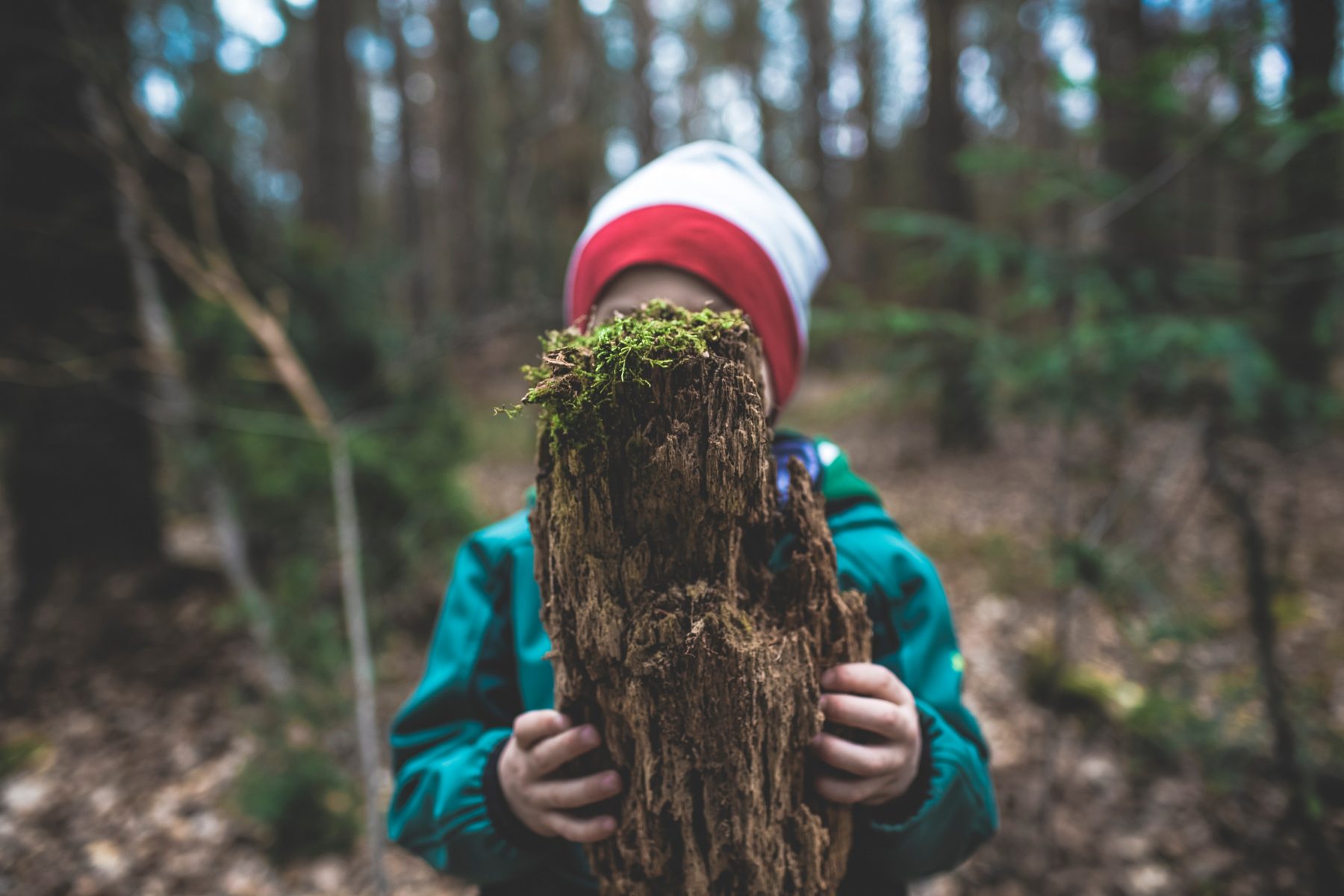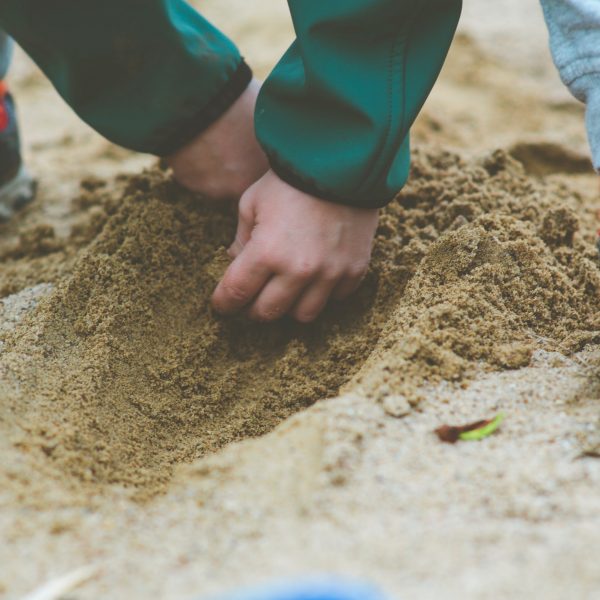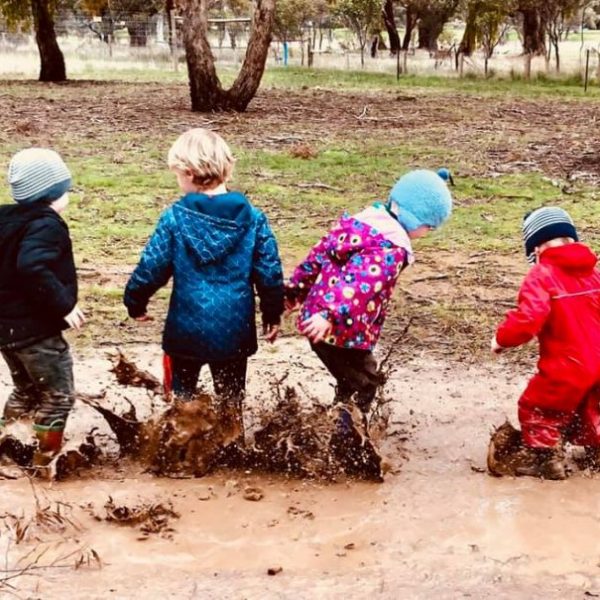Scotland’s outdoor play initiative has some lessons for the rest of the world

As Scotland considers the eventual re-opening of schools and non-emergency child-care facilities as the threat of coronavirus recedes, early childhood advocates are eagerly anticipating a now-delayed rollout of an important social policy experiment.
The Scottish government planned to undertake a child-care initiative to double the number of fully funded (free) child-care hours available to parents. This initiative was intended to unfold by the end of 2020, but in light of coronavirus closures, this timeframe has now be extended.
As part of this effort to expand fully funded child care, a new focus on outdoor play emerged. The outdoor play movement in Scotland initially started as a grassroots effort but has been adopted by the national government as a way to accommodate more children within child-care programs, address obesity, reduce screen time, increase children and parents’ connection to the environment, and improve mental health issues.
As such, the innovative and large-scale initiative is one whereby children in early learning and care programs will be required to spend a significant portion of their time outdoors.
Significant outdoor play not the norm
What defines a significant portion of time may vary greatly between individual children and programs. Currently, in Scotland, as in other parts of the western world (for example, Scandinavia, Canada, Australia), outdoor play programs are “boutique” programs that serve and are staffed by a very small subset of families, children and early childhood educators. The majority of parents who send their children to outdoor play programs often do so on a part-time basis (between one to three days per week) rather than on a full-time basis.
It is not clear what the reaction will be in Scotland when more outdoor play is brought in to the mainstream.
This balance between time spent indoors versus outdoors represents an effort to provide children with structured early learning and care services that provide time to play and explore freely in the natural environment. Outdoor play presents an important opportunity for growth and enrichment for children.
Benefits to children
In addition to the physical and psychological benefits for children’s development, educators advocating for outdoor play view the natural environment as an open and relaxing place where children can exercise more control over their activities.
The research on the effects of outdoor play programs on children has largely been conducted with small-scale qualitative studies in the context of existing programs.
We do not have large-scale data to suggest how outdoor play will affect children and educators when it is mandated for children in mainstream care settings. Moreover, as we documented in a recent study in press with the Canadian Journal of Environmental Education, (“How and why did outdoor play become a central focus of Scottish Early Learning and Care policy?”), there are several barriers to outdoor play in Scotland.
These include parental buy-in, weather and equipment constraints, child preferences, educator training, funding issues and the fact that parents, policy makers and educators perceive outdoor play to involve greater risk for children.
Children learn about risk
This perceived risk in outdoor play settings is an interesting and nuanced issue. There is a constant tension for parents, educators and policy-makers between the inclination to protect children from harm on the one hand and, on the other hand, the acknowledgement that over-protecting children may do them a disservice in the long run.
Teaching children to recognize, assess and manage levels of risk for themselves and others is a fundamental life skill.
During our study, when we visited outdoor play programs in Scotland, we witnessed some beautiful examples of adults guiding children on managing risks. For example, there was a young boy who, when we approached a river bank, drew a line in the ground with his foot and pointed to it, explaining to us that no one was allowed to go past that point without an adult.
Other examples included educators helping children assess a safe height for climbing a tree and teaching children to scan for poisonous and prickly plants.
When such risk assessment procedures are well thought out and explicit, they can help reduce children’s risk in the moment and help them assess risk for themselves in the long run.
Training and grit
We also found in our research that in addition to concerns about risks to children, Scotland faces concerns from parents and educators about putting children outside for long periods given its cold, wet and windy climate.
There is a worry that educators and program leaders will not have the necessary training or grit to oversee these programs. Stakeholders we interviewed in our study all noted that the adults leading these outdoor programs need to have specialized training, knowledge and endurance to tackle the unique challenges faced in outdoor environments. Among these stakeholders were policy makers, educators, child-care advocates and individuals working for the Forestry Commission (since 2019 the commission split into two organizations, Forestry and Land Scotland and Scottish Forestry).
However, it is worth noting that outdoor schooling and outdoor play programs in western schooling systems initially began in Scandinavian countries. These countries have long, dark winters. This dispels the notion that such outdoor play programs are not viable in countries with cold climates such as Scotland and even Canada.
Given the many benefits of outdoor play, we hope people are encouraged to take advantage of outdoor spaces available in both rural and urban settings. You don’t have to go far outside to find them, regardless of where you live.
Time will tell if Scotland’s experiment will work. While it may not solve all the pragmatic issues faced by the Scottish government, such as a severe shortage of ready facilities, it will serve as a crucial source of information on outdoor play for the rest of the world.![]()
Michal Perlman, Professor of Applied Psychology and Human Development, University of Toronto; Catherine Bergeron, Research Co-ordinator and PhD Student, Counselling Psychology, McGill University, and Nina Howe, Professor of Early Childhood and Elementary Education, Research Chair in Early Childhood Development and Education, Concordia University
This article is republished from The Conversation under a Creative Commons license. Read the original article.
Popular

Policy
Practice
Provider
Quality
Spot checks, CCTV and scrutiny of Working With Children Checks: sector responds to child safety crisis
2025-07-07 07:15:26
by Fiona Alston

Quality
Practice
Provider
Research
Workforce
Honouring the quiet magic of early childhood
2025-07-11 09:15:00
by Fiona Alston

Policy
Practice
Provider
Quality
Workforce
Minister Jess Walsh signals urgent action on safety and oversight in early learning
2025-07-11 08:45:01
by Fiona Alston








